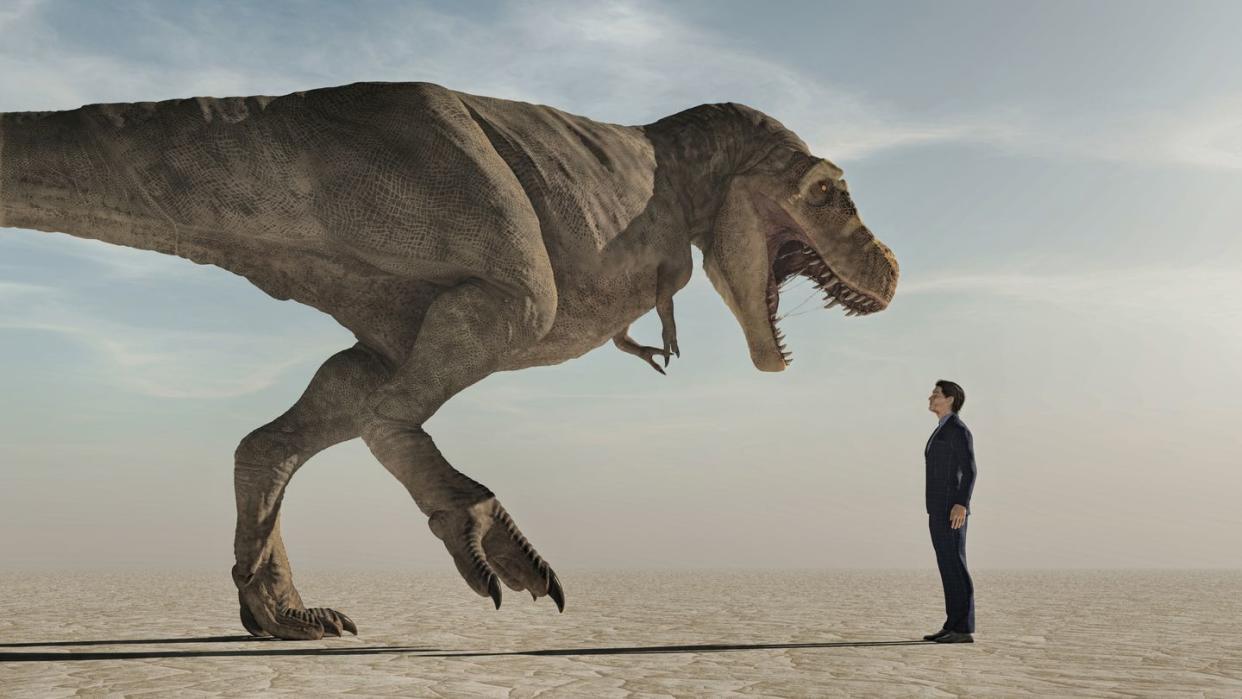A Scientist Says Humans Were Meant to Live So Much Longer—Then the Dinosaurs Ruined It

A microbiologist named Jo?o Pedro de Magalh?es has proposed the idea that the reign of dinosaurs forced mammals to speed up their reproductive cycle, eliminating key longevity genes.
de Magalh?es posits that in order to survive amidst dinosaurs, mammals may have actively evolved away from long life, something he calls the “longevity bottleneck hypothesis.”
He claims that even though mammals (such as humans) can have relatively long lifespans, we still operate under dinosaur-era restraints.
Mammals may struggle to attain long life thanks to dinosaurs. According to University of Birmingham microbiologist Jo?o Pedro de Magalh?es, the age of dinosaur dominance completely shifted the evolutionary track of virtually every mammal on Earth, refocusing evolutionary efforts on rapid reproduction instead of long life.
You see, there was no point in trying to live for a long time when a dinosaur would just eat you anyway. To keep a species alive, rapid reproduction proved way more useful.
“My hypothesis is that such a long evolutionary pressure on early mammals for rapid reproduction led to the loss or inactivation of genes and pathways associated with long life,” de Magalh?es wrote in a paper published in BioEssays. “I call this the ‘longevity bottleneck hypothesis,’ which is further supported by the absence in mammals of regenerative traits.”
While noting that humans (along with elephants and whales) theoretically have the potential to live longer than most other mammals, de Magalh?es said that every mammal is still living under genetic constraints dating back to the era of the dinosaurs.
“Evolving during the rule of the dinosaurs left a lasting legacy in mammals,” de Magalh?es wrote. “For over 100 million years when dinosaurs were the dominant predators, mammals were generally small, nocturnal, and short-lived.”
The pressure to stay alive eliminated the genes needed for long life. Citing reptiles and other animals with a much slower biological aging process than mammals, de Magalh?es hypothesizes that during the Mesozoic Era, mammals either lost or deactivated genes associated with long life.
“Some of the earliest mammals were forced to live toward the bottom of the food chain and have likely spent 100 million years during the age of the dinosaurs evolving to survive through rapid reproduction,” de Magalh?es wrote in a statement. “That long period of evolutionary pressure has, I propose, an impact on the way that we humans age.”
Digging deeper into the research, de Magalh?es came to believe that the loss of enzymes tied to the Mesozoic Era limits many mammals’ ability to repair damage. Examples include the loss of enzymes that restores skin singed by ultraviolet light and the fact that mammal teeth don’t continue growing throughout their lifetime like reptiles.
He says that the animal world offers remarkable repair and regeneration examples, but that some of that genetic information would have been “unnecessary for early mammals that were lucky to not end up as T. Rex food.”
Of course, de Magalh?es knows this is all just a hypothesis, but it’s one he thinks could have some substantial explanatory power. “There are lots of intriguing angles to take this,” he said, “including the prospect that cancer is more frequent in mammals than other species due to the rapid aging process.”
If we really do have the dinosaurs to blame for our rapid aging, at least we got the last laugh.
You Might Also Like
